Taking my life in my hands — as we all do when getting out of bed — I walked along the Thames last week. On the northern footpath east of Blackfriars Bridge, a young man ran atop the adjacent wall and jumped across a gap in the brickwork. The gap was six feet long, the wall as high. Had he missed, he’d have met all manner of hazards on either side. He gained nothing overt from that leap, only an ephemeral sense of satisfaction, yet risked broken bones or a fractured skull. As he turned heel in preparation for repeating the feat, I was both aghast and impressed.
We could call that young man foolhardy. Yet I wager that an ‘ephemeral sense of satisfaction’ is precious to someone in his twenties, and could in time transfer to making leaps of a metaphorical sort later in a career. When I was young, I took an enormous leap of faith by committing to becoming a novelist — a risk of which I was under-aware at the time — which to most clued-up observers was foolhardy in the extreme.
The age group most inclined to elevate safety to the highest of virtues is the elderly. Old people are more physically fragile. The shank of their lives is behind them, including their own feats of derring-do. While there are many delightful exceptions, seniors as a cohort are most likely to value tranquillity and protection from harm over new exploits and adventures.
Societies also have stages of life. By locking down during the coronavirus pandemic (you knew I’d get to that), the whole western world has clung to safety above all else. We’ve willingly traded prosperity, functionality, joy, good company and the productive futures of upcoming generations for short-term security. That’s a security narrowly defined as well: individual medical security, as opposed to the broader, more long-term security of a sound economy and a thriving community. Hysterical safety-ism is the mark of a society that has passed its peak. The West has subsided to a geriatric phase of high anxiety and low expectations.
With safety as a prime directive, Sir Ernest Shackleton would never have come anywhere near the South Pole, because he might have got cold. David Livingstone would have found Victoria Falls only in order to wash his hands in it. Sir Francis Drake could never have set sail, because rubberised non-slip decking had yet to be invented. Winston Churchill would certainly not have sanctioned Dunkirk, because someone might have got hurt. Given how popular this domestic pastime has proved during lockdown, Sir Ranulph Fiennes would surely have spurned Mount Everest for the staircase in his house — after taking a course in proper stair-climbing technique from his local council, donning knee pads and a crash helmet, and stopping for frequent water breaks to remain hydrated.
Perhaps in future we’ll adulate a whole different set of national heroes. We’ll give Olympic medals to gymnasts who realise that flipping around uneven parallel bars is terribly dangerous, and so have prudently sat out their athletic careers in a chair. The winner of the Tour de France will be the cyclist who never rides faster than eight miles an hour and remembers to wear sunscreen. We’ll award the Victoria Cross to the safest member of the armed forces ‘in the presence of the enemy’ — who comes under bombardment and hides in the boot of his jeep, or who safely joins the other side if it seems to be winning.
Look, I wear seatbelts. During the pandemic, I’ve not been bursting into Covid wards and begging positive patients to lick my face. Cycling down steep hills these days, I tend to ride the brake a tad — but I recognise that giving the thrill of speed a miss in order to handle the unexpected is a sure sign that I’m getting old.
Accepted, when Covid first hit, available data was patchy. But before the UK’s lockdown, smaller studies already pointed towards what the US Centers for Disease Control — hardly a hotbed of libertarian nut jobs — announced last week: the infection fatality rate of Covid-19 is nowhere near 3.4 per cent as first feared, but around 0.26 per cent. Seasonal flu’s IFR is 0.1 per cent, 0.2 per cent in an especially bad year. Thus Covid-19 is barely more lethal than a bad flu. True, flu can be wretched and even fatal, but we live with that risk every winter.
Now that this, you’d think, comforting information is in, most Britons are still cowering in place. When guests on the news say ‘There’s no such thing as perfect safety’ or ‘We always live in a world of competing risks’, these self-evident bromides fall on deaf ears. (You can’t prove a negative. It’s impossible to demonstrate that schools or workplaces are not unsafe.) If early humans were too frightened to leave the cave to hunt for food, none of us would be here. What’s wrong with you people? What’s made this country so formidable for a thousand years, — being incredibly careful?
Meanwhile, isolating schoolchildren within chalk circles may have a negligible epidemiological effect, but a profound psychological one. We’re inculcating chronic fearfulness in our kids, who will skip from the helplessness of infancy to the neurotic hyper-caution of old age with no moon landings in-between.
We’ve prioritised the preservation of life in a literal, short-term sense — possibly losing more lives than we’ve saved, once the collateral damage totals are in — while giving no priority to everything that makes life worth living, like the experience of bravery that young man leaping a gap in the wall relished last week. Worse, we’ve thrown the future of a generation under a bus. Safety is fine as far as it goes, but it’s not the driver of a vibrant culture. Safety is about stasis. If all you care about is safety, you never leave the house, lockdown or no lockdown. Obsession with safety is the very opposite of ambition. No wonder China is flexing its muscles. The western response to Covid-19 is an ominous sign of civilizational senescence.
Got something to add? Join the discussion and comment below.
Get 10 issues for just $10
Subscribe to The Spectator Australia today for the next 10 magazine issues, plus full online access, for just $10.
You might disagree with half of it, but you’ll enjoy reading all of it. Try your first month for free, then just $2 a week for the remainder of your first year.


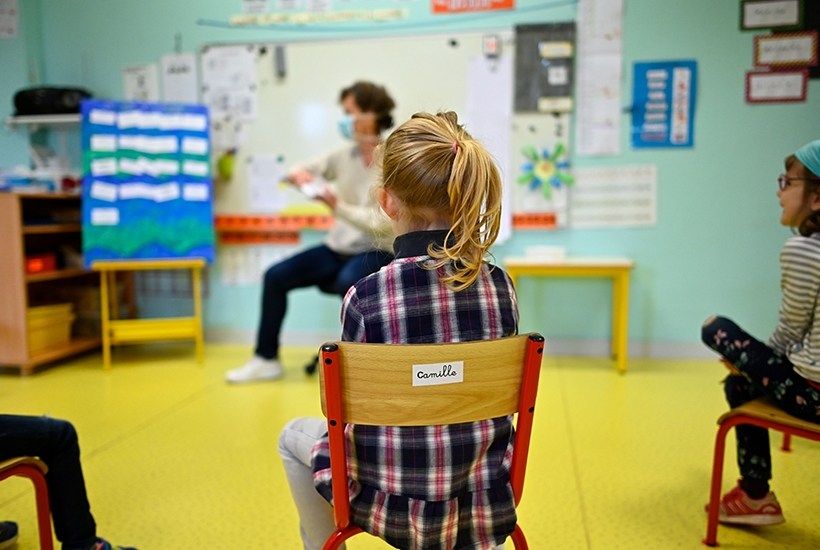
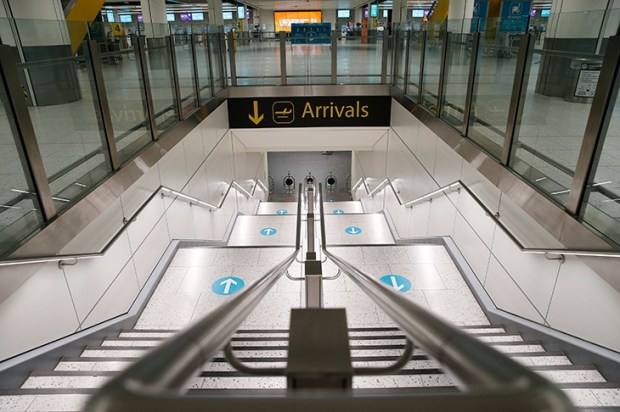
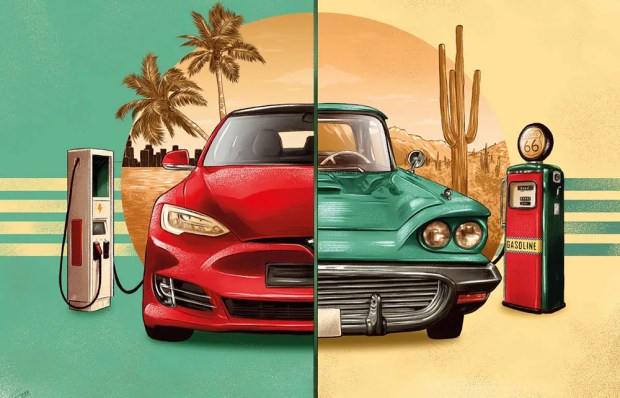
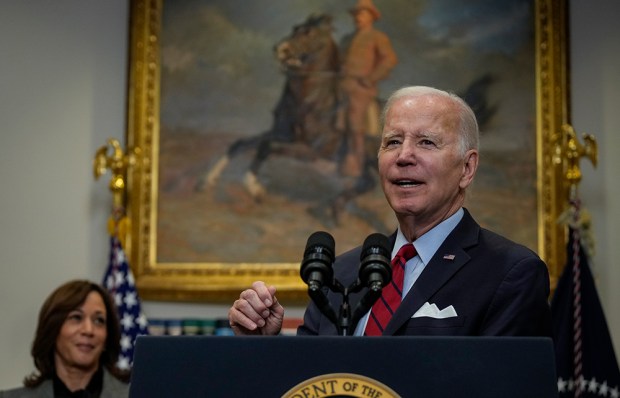


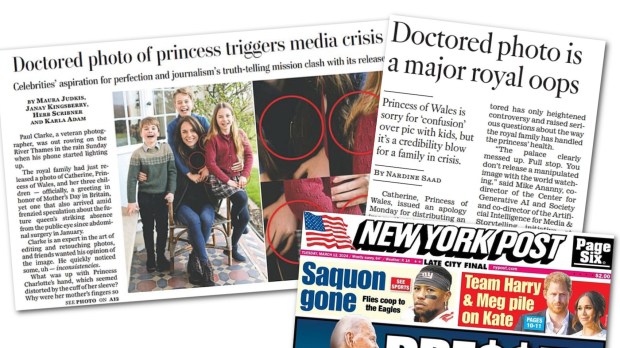






Comments
Don't miss out
Join the conversation with other Spectator Australia readers. Subscribe to leave a comment.
SUBSCRIBEAlready a subscriber? Log in